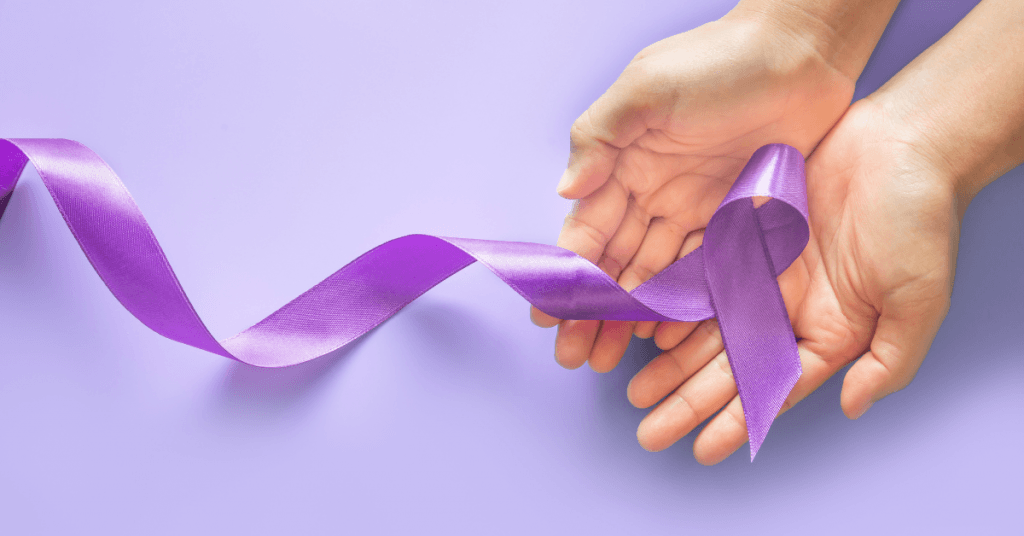April is Testicular Cancer Awareness Month, which places an emphasis on raising awareness and providing education about testicular cancer, its risk factors, symptoms, and treatment. According to the American Association for Cancer Research (AACR), testicular cancer most often develops in young and middle-aged men and is the most common form of cancer in 20- to 35-year-old men.
Testicular Cancer Awareness Month
Testicular cancer can pose a serious risk to reproductive health if left untreated. However, if detected early, it is highly treatable and often curable. Here at Alliance Urology, we urge all men to be educated on the risk of testicular cancer and to perform testicular self-exams regularly. To help raise awareness this month, we have compiled a list of 6 things everyone should know about this specific type of cancer.
1. Testicular Cancer Is Most Commonly Found In Younger Men
According to John Hopkins Medicine, testicular cancer is most common in men in their late 20s and early 30s, with an average age of diagnosis of 33 years old. However, it is important to remember that this cancer can occur in men at any age.
2. There Are Different Types Of Testicular Cancer
There are many types of cells in the testicles. Each type of cell can develop into cancer. Knowing which type of cancer is present is important when determining the right treatment.
- Germ cell tumors: Germ cells are the cells in the testicles that make sperm. According to the American Cancer Society, over 90% of testicular cancers start in germ cells.
- Carcinoma in situ (CIS) of the testicle: Also called intratubular germ cell neoplasia. Germ cell cancers can start as testicular CIS, which is a non-invasive form of the disease. It is difficult to find CIS before it develops into invasive cancer because it is usually asymptomatic.
- Stromal tumors: These are tumors that start in the stroma, which are the hormone-producing tissues of the testicles.
- Secondary testicular cancers: Whenever cancer starts in one place and metastasizes (spreads) to the testicles, it is not considered true testicular cancer. Cancers are named and treated based on where they started.
If you’re diagnosed with one of the above cancers, your doctor will go over a comprehensive list of everything you need to know.
3. Not All Men Experience Symptoms
It is true that not all men experience symptoms associated with testicular cancer. However, in the case, a man does experience symptoms, the most common include
- A lump or swelling in either testicle
- The sensation of “heaviness” in the scrotum
- A dull ache in the lower abdomen or groin area
- Back pain
- Sudden swelling, pain, or discomfort in a testicle or the scrotum
It is important to note that not all testicular lumps are cancerous. However, seeing your healthcare provider can help detect any symptoms that may be a cause for concern.
4. Treatments Include Surgery, Chemotherapy, Or Radiotherapy.
To diagnose this cancer, your healthcare provider may suggest an ultrasound or blood test. Once a diagnosis is made, the most common treatments include surgery, chemotherapy, or radiotherapy. Surgery for testicular cancer is called orchiectomy, which translates to the surgical procedure done to remove a testicle. According to the American Cancer Society, radiation therapy is mainly used for those with seminoma, and chemotherapy is often used when cancer has spread outside the testicle.
5. Testicular Cancer Is Highly Treatable
Luckily, testicular cancer is highly treatable, even if it spreads to other areas of the body. When caught early, the cure rate is close to 100%. Because early detection is so important, it is crucial to conduct self-testicular exams regularly. This can be done by checking for any lumps, bumps, or unusual features on the testes or scrotum, making note of any changes in size over time, and being cognizant of any dull soreness or heaviness.
This month, Alliance Urology Specialists wants to raise awareness and help make a difference in the fight against testicular cancer. We are home to an expert team of urologists that are committed to providing comprehensive care to adults with urologic disorders as well as testicular issues. We combine years of experience with the latest in diagnostic and treatment options. If you have concerns about your urologic or testicular health, call our office at (336) 274-1114 to make an appointment.


